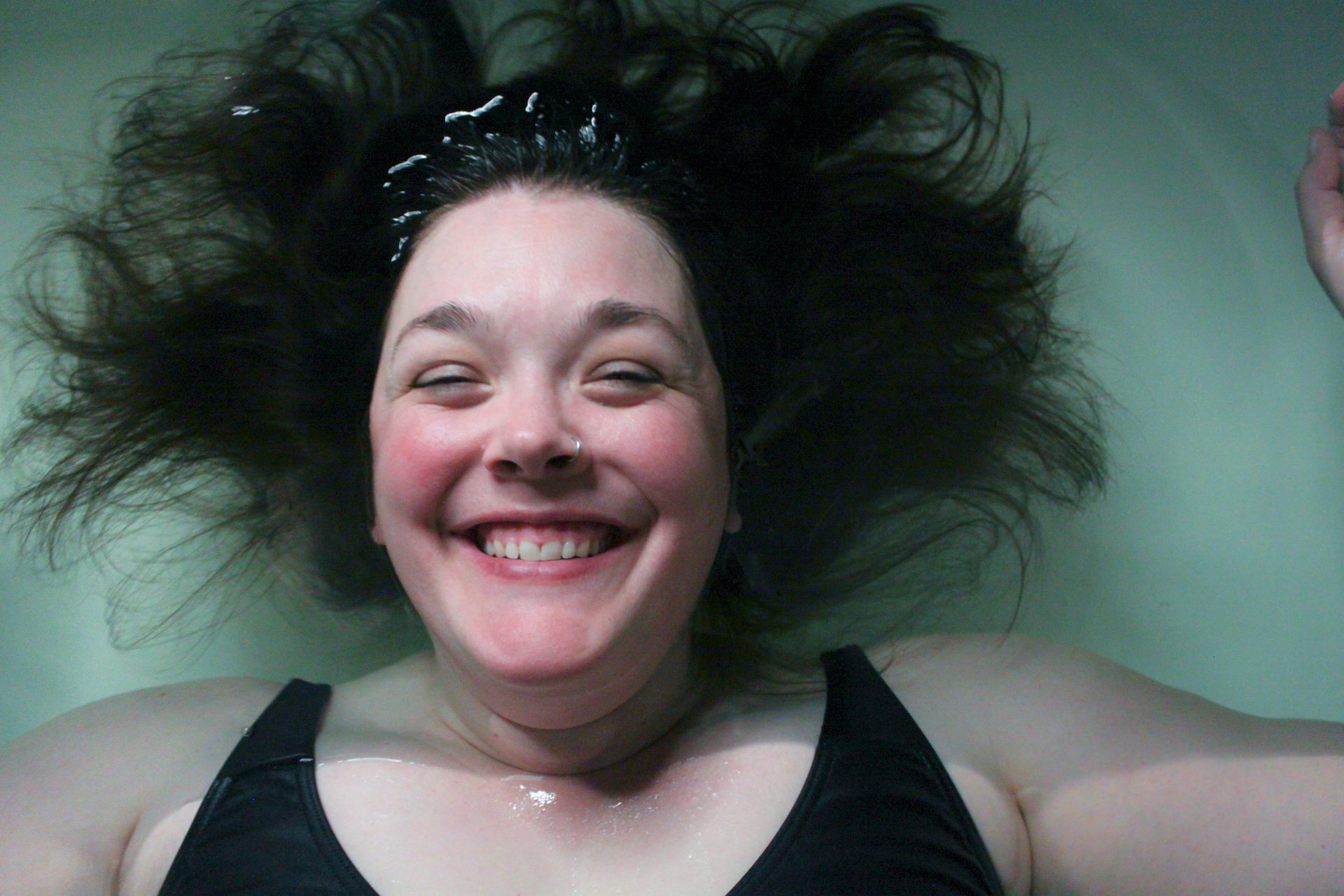Floating Sensory Deprivation Near Me
Floating Sensory Deprivation Near Me

Floating Sensory Deprivation Near Me
Are you feeling overwhelmed by the constant noise and chaos of daily life? Imagine stepping into a tranquil oasis where all your senses are gently muted, allowing your mind and body to reset. Welcome to the world of floating sensory deprivation! In this article, we’ll explore the ins and outs of this unique therapy, uncover its benefits, and help you find the perfect floating sensory deprivation center near you.
What is Floating Sensory Deprivation?
Floating sensory deprivation, also known as float therapy, involves lying in a tank filled with saltwater at body temperature, creating a sensation of weightlessness. This practice dates back to the 1950s when Dr. John C. Lilly pioneered the concept to explore human consciousness. Today, it’s a popular therapy for physical and mental well-being.
History of Sensory Deprivation
Sensory deprivation tanks were first developed in the mid-20th century by Dr. John C. Lilly, a neuroscientist interested in exploring altered states of consciousness. Over the decades, the practice has evolved from a niche experiment to a widely accepted wellness treatment.
How Floating Therapy Works
The tank, often referred to as a float tank or isolation tank, is filled with a solution of water and Epsom salt, making the water dense enough for you to float effortlessly. The water is maintained at skin temperature, and the tank is designed to block out light and sound, creating a serene environment for deep relaxation.
Common Misconceptions
There are a few misconceptions about floating sensory deprivation. Some people think it’s scary or claustrophobic, but most find it deeply relaxing once they give it a try. Another myth is that you need to know how to swim, but floating requires no swimming skills at all.
Benefits of Floating Sensory Deprivation
Physical Benefits
Pain Relief
Floating can provide significant pain relief for conditions like arthritis, fibromyalgia, and chronic back pain. The buoyancy reduces pressure on joints and muscles, allowing for a pain-free experience.
Muscle Relaxation
The Epsom salt solution helps to relax muscles and reduce inflammation. Athletes often use float therapy to aid in muscle recovery and enhance performance.
Mental Benefits
Stress Reduction
One of the most well-known benefits of floating is its ability to reduce stress. The sensory deprivation environment allows your mind to enter a meditative state, helping to lower cortisol levels and promote relaxation.
Enhanced Creativity
Many people report heightened creativity and problem-solving abilities after a float session. The quiet, distraction-free environment can lead to profound insights and a fresh perspective on challenges.
How to Prepare for Your First Float
What to Expect
For your first float, it’s normal to feel a bit anxious. Knowing what to expect can help ease any apprehension. You’ll typically start with a brief orientation and shower before entering the float tank.
What to Bring
Most centers provide everything you need, including earplugs, towels, and toiletries. However, it’s a good idea to bring any personal items you may need for comfort.
Pre-Float Tips
Avoid caffeine and heavy meals before your session. Arrive early to give yourself time to relax and adjust to the new environment.
During Your Float
Initial Sensations
When you first enter the tank, you might feel a bit disoriented. It takes a few minutes to adjust to the sensation of floating and the absence of external stimuli.
Techniques to Enhance the Experience
Focus on your breathing and try to clear your mind. Some people find it helpful to practice mindfulness or meditation techniques during their float.
Common Experiences
People often report a feeling of deep relaxation, vivid mental imagery, and a heightened sense of awareness. Each float can be a unique experience.
After Your Float
Immediate Aftereffects
After your session, you might feel a bit groggy or disoriented. Take your time getting up and out of the tank, and drink plenty of water to rehydrate.
Post-Float Tips
Spend a few minutes in a quiet space to reflect on your experience. Avoid jumping back into your busy routine immediately; instead, take it slow and enjoy the lingering sense of calm.
Long-term Benefits
With regular sessions, the benefits of floating can accumulate, leading to improved sleep, reduced stress, and better overall well-being.
Finding a Floating Sensory Deprivation Center Near You
Researching Local Centers
Start by searching online for float centers in your area. Websites like Yelp and Google Reviews can provide valuable insights into the quality of service and customer experiences.
Reading Reviews
Pay attention to reviews that mention cleanliness, staff professionalism, and overall atmosphere. These factors can greatly influence your experience.
Asking for Recommendations
Word of mouth can be incredibly helpful. Ask friends, family, or colleagues if they have any recommendations for float centers nearby.
Pricing and Packages
Average Costs
The cost of a single float session can range from $50 to $100, depending on the location and facilities.
Membership Options
Many centers offer membership packages that can reduce the cost per session. These often include additional perks like extended float times and discounts on other services.
Discounts and Deals
Look out for introductory offers, group discounts, and seasonal promotions. Signing up for a center’s newsletter can also keep you informed about special deals.
Frequently Asked Questions (FAQs)
Is Floating Safe?
Yes, floating is generally safe for most people. The water is kept clean with filtration systems and disinfectants.
How Often Should I Float?
The frequency of floating depends on your personal goals and needs. Some people float weekly, while others may go monthly or as needed.
Can I Float if I Can’t Swim?
Absolutely! You don’t need any swimming skills to float. The high salt concentration ensures you stay buoyant.
What if I’m Claustrophobic?
Most people with mild claustrophobia find they can float comfortably. Many tanks have lights you can control and a door you can leave slightly open.
How is the Water Kept Clean?
The water is filtered multiple times between sessions and treated with a combination of UV light, ozone, and hydrogen peroxide to ensure cleanliness.
Floating Sensory Deprivation for Specific Conditions
Anxiety and Depression
Floating can help reduce symptoms of anxiety and depression by promoting relaxation and reducing stress hormones.
Chronic Pain
For those suffering from chronic pain, float therapy can offer relief by reducing muscle tension and inflammation.
Insomnia
Many people report improved sleep patterns after regular float sessions due to the deep relaxation experienced.
Athletic Recovery
Athletes use float therapy to speed up recovery, reduce muscle soreness, and enhance overall performance.
The Science Behind Floating Sensory Deprivation
Research Studies
Numerous studies have shown the benefits of float therapy for stress reduction, pain relief, and mental clarity.
Scientific Theories
Theories suggest that floating helps to reset the body’s balance, reduce sensory overload, and promote a state of deep relaxation.
Future Directions
Research is ongoing to explore the full potential of float therapy, including its effects on brain function and mental health.
Personal Stories and Testimonials
User Experiences
Many people share positive experiences, describing how floating has helped them manage stress, pain, and improve their overall quality of life.
Before and After Stories
Stories of transformation highlight the profound impact float therapy can have on physical and mental health.
Celebrity Endorsements
Celebrities like Joe Rogan and Steph Curry have endorsed floating, bringing more attention to its benefits.
DIY Sensory Deprivation at Home
Feasibility and Safety
While it’s possible to create a DIY float tank, it’s challenging to replicate the exact conditions of a professional center.
Basic Setup
A basic setup might include a small pool, Epsom salts, and a quiet, dark room. However, maintaining cleanliness and proper water temperature can be difficult.
Limitations Compared to Professional Centers
Professional centers offer advanced filtration systems, optimal water conditions, and a controlled environment that’s hard to replicate at home.
Conclusion
Floating sensory deprivation is a powerful tool for achieving deep relaxation, reducing stress, and enhancing overall well-being. Whether you’re looking to relieve pain, boost creativity, or simply find a moment of peace in a busy world, float therapy has something to offer. So why not give it a try? You might just discover a new favorite way to unwind and rejuvenate.
FAQs
- Is Floating Safe? Yes, it’s safe and the water is kept clean with advanced filtration systems.
- How Often Should I Float? Float as often as you need, from weekly to monthly.
- Can I Float if I Can’t Swim? Yes, floating doesn’t require swimming skills.
- What if I’m Claustrophobic? You can control the lights and door to make the experience comfortable.
- How is the Water Kept Clean? The water is filtered and treated with UV light, ozone, and hydrogen peroxide.
Ready to experience the benefits for yourself?
Click here or the button below to schedule your session.












